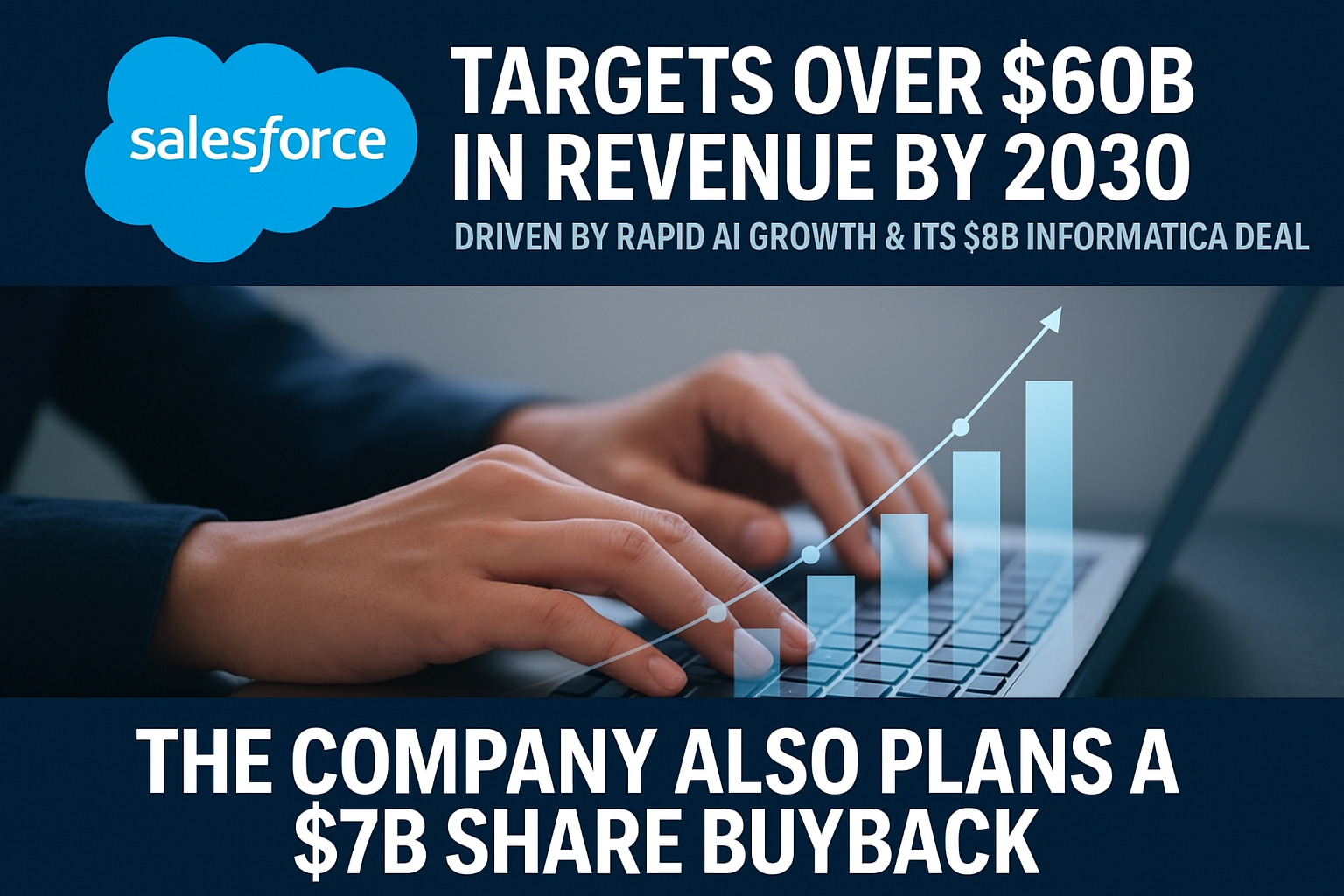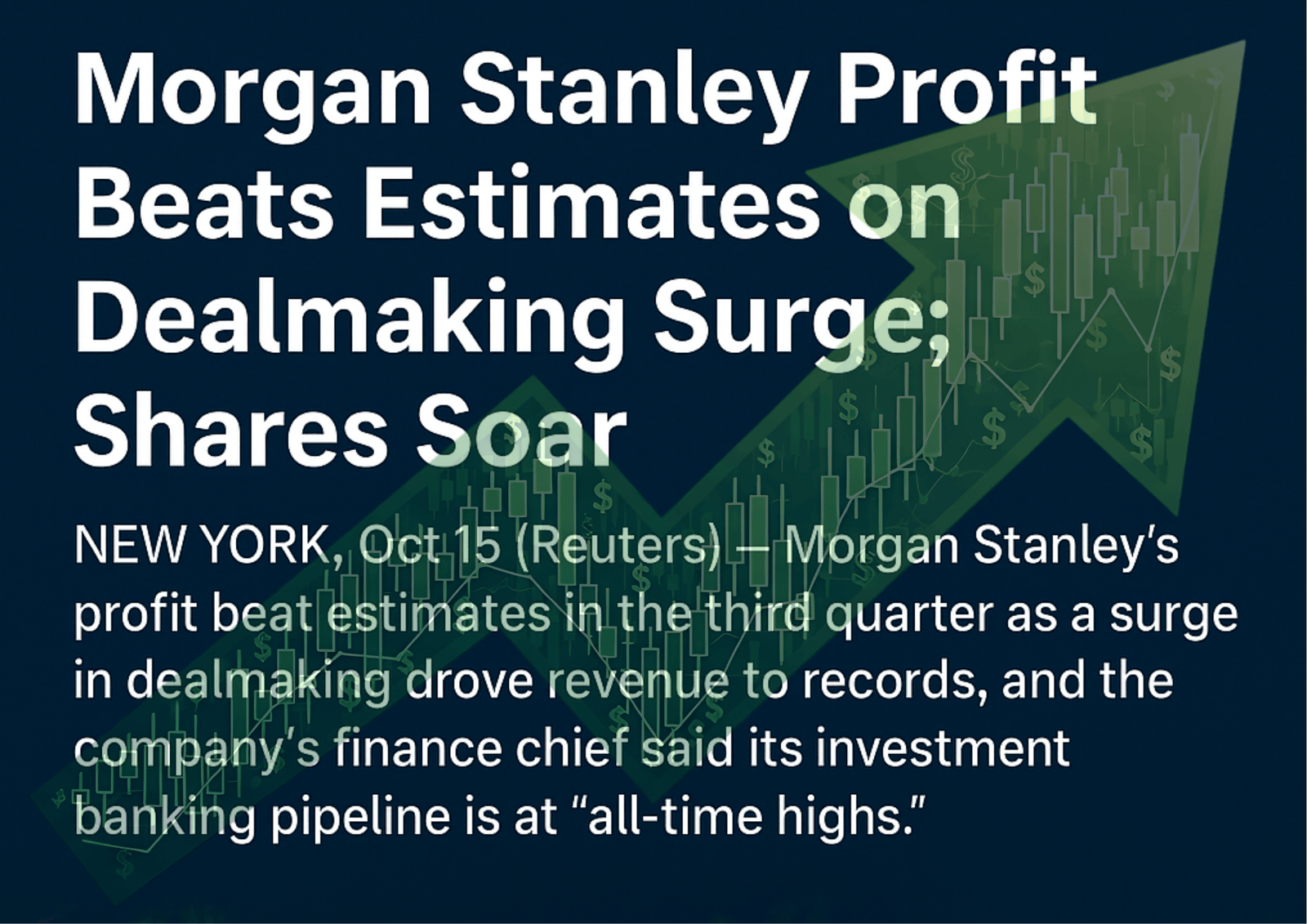Salesforce bets big on AI — eyes $60B revenue by 2030
Salesforce targets over $60 billion in revenue by 2030, driven by rapid AI growth and its $8B Informatica deal. The company also plans a $7B share buyback, showing strong confidence in its future.
Salesforce bets big on AI — eyes $60B revenue by 2030
Salesforce, one of the world’s leading cloud software companies, has projected revenue exceeding $60 billion by 2030, outpacing Wall Street’s forecast of about $58.37 billion. The announcement came during its annual Dreamforce event, where the company highlighted its rapid expansion into artificial intelligence (AI) and its vision to reshape the future of enterprise cloud computing.
The new revenue outlook underscores Salesforce’s confidence in its AI-driven strategy. Over the past year, the company has been integrating powerful AI capabilities across its suite of cloud services — from sales and marketing to customer relationship management and automation. Its flagship Agentforce AI platform plays a central role in this transformation, designed to automate routine business tasks, enhance customer engagement, and boost operational efficiency.
To further strengthen its AI and data management capabilities, Salesforce recently agreed to acquire Informatica for around $8 billion. Informatica’s data integration and governance tools will be merged with Salesforce’s ecosystem, helping businesses manage and analyze massive amounts of data more effectively — a key requirement for training and running AI models at scale.
In addition to its aggressive AI expansion, Salesforce also announced plans to buy back $7 billion worth of shares over the next six months, signaling strong confidence in its long-term growth prospects. Although Salesforce shares have fallen 29% this year, the stock jumped nearly 4% in after-hours trading following the announcement, as investors responded positively to the company’s ambitious forecast and renewed focus on profitability.
However, challenges remain. The company’s recent third-quarter forecast fell short of Wall Street expectations, raising concerns about the pace of AI monetization amid uncertain global economic conditions. Customer spending across the tech sector has slowed, and Salesforce, like its peers, faces pressure to demonstrate clear financial returns on its heavy investments in AI.
Still, industry experts believe Salesforce’s long-term strategy is solid. By combining AI, data management, and automation under one unified platform, Salesforce aims to cement its leadership in the global cloud industry. If successful, this approach could make it one of the first software companies to truly integrate AI at the core of every business operation — a vision CEO Marc Benioff has called “the future of intelligent enterprise.”









